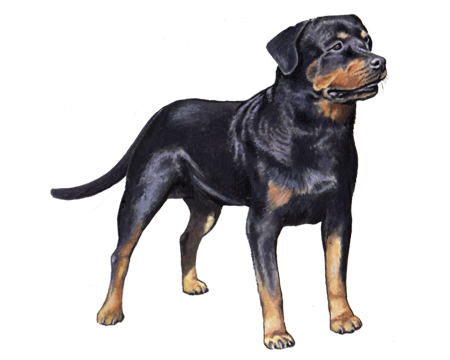
Boston Terrier
Boston Terriers are lively and clever dogs that make excellent pets and devoted companions. They are gentle and friendly to children, other pets, and strangers.
Interested in discovering if your dog is a Boston Terrier?
Check out Wisdom Panel's DNA tests.

Boston Terrier Traits
General Appearance
Boston Terriers are small, sturdy, muscular little dogs—compactly built, short-tailed, and well-balanced. They have a broad, flat-nosed face without wrinkles and a slightly arched, prominent neckline with a full chest, similar to the Boxer.
Coat and Coloring
The Boston Terrier has a sleek, fine coat with markings that resemble a stylish tuxedo. The breed's white paws and chest are complemented by black, brindle, or seal (i.e., black with a red cast when viewed in the sun or bright light).
Distinctive Physical Traits
Boston Terriers have square heads, upright ears, short, broad muzzles, and large, round eyes.
Boston Terrier Temperament
The Boston Terrier gets along with just about everyone. In fact, the breed's nickname is "The American gentleman" because of its tender disposition.
Boston Terriers are also very affectionate and love receiving attention from their human family. Though they can be a bit stubborn, they're very friendly to other pets and people.


Boston Terrier History
The Boston Terrier can trace its history back to 1865-era Boston, Massachusetts. Coachmen for the wealthy residents of Boston would crossbreed their employers' dogs for pit-fighting purposes. The cross of an English Bulldog with an English White Terrier (now extinct) resulted in the first iteration of what would become the Boston Terrier.
As dogfighting became illegal and unpopular, people began to consider the Boston Terrier as a companion animal because it exhibited a notable devotion to its master.
Nowadays, Boston Terriers make wonderful family dogs. They've grown popular in the United States and abroad. Because of their rather small size, they're particularly well-suited for smaller homes or apartments. Though the breed had been established and loved for quite some time, the American Kennel Club officially recognized the Boston Terrier in 1893.
Boston Terrier Care
Nutrition
Boston Terriers need a high-quality dog food that is age-appropriate. As you should with any dog, be sure to monitor the amount of food your Boston Terrier consumes and reduce the portions if your pup gains weight. Also, remember that giving too many treats in addition to regular meals can contribute to obesity.
Grooming
The Boston Terrier sheds somewhat frequently. Weekly brushing with a soft-bristle brush, rubber grooming mitt/tool, or hound glove will remove loose hair while promoting new hair growth. Doing this also distributes skin oils throughout the coat to keep it healthy.
Baths are only needed occasionally unless your dog gets particularly dirty. But regular nail trimming is a must because overly long nails can cause the dog pain—as well as problems walking and running.
Exercise
Active and playful to the point of rambunctious, Boston Terriers enjoy activities that test their agility, tracking, and obedience skills, such as flyball and rally.
Exercise needs vary from dog to dog. Some need only a brisk walk a couple of times per day, whereas others want time to run and play. But if left for long periods or deprived of the opportunity to let out some energy, all Boston Terriers have the potential to get flustered and develop unwanted behaviors.
Training
The Boston Terrier is very intelligent and relatively easy to train. They love to learn and respond well to vocal instructions. As all breeds do, Boston Terriers benefit from early socialization and dedicated obedience training.

Boston Terrier Genetic Health Conditions
-
Limb-girdle Muscular Dystrophy (Discovered in the Boston Terrier) Variant 2
Limb-girdle Muscular Dystrophy (LGMD) is a disorder that is characterized by progressive muscle wasting, particularly over the shoulders and hips, and changes in walking patterns. The associated genetic variant (LGMD2F2) has been identified in the Boston Terrier
-
Hereditary Calcium Oxalate Urolithiasis, Type 1
Hereditary Calcium Oxalate Urolithiasis, Type 1 (CaOx1) is a genetic disorder that greatly increases the risk for urinary stones composed of calcium oxalate to form within the kidneys or bladder.
-
Limb-girdle Muscular Dystrophy (Discovered in the Boston Terrier) Variant 1
Limb-girdle Muscular Dystrophy (LGMD) is a disorder that is characterized by progressive muscle wasting, particularly over the shoulders and hips, and changes in walking patterns. The associated genetic variant has been identified in the Boston Terrier
Knowing if your Boston Terrier is a carrier or at-risk for these conditions can help you and your veterinarian plan for your pup’s lifelong care. With Wisdom Panel™ Premium, you can get results for over 200 genetic health tests.
Breed Group
Guard
Dogs of the Guard Group were bred to guard people and property. They are often quick to learn and these intelligent, capable animals make solid companions.
Resources
https://www.akc.org/dog-breeds/boston-terrier/
Reviewed July 26, 2020 by Cindy Elston, DVM, MPH























